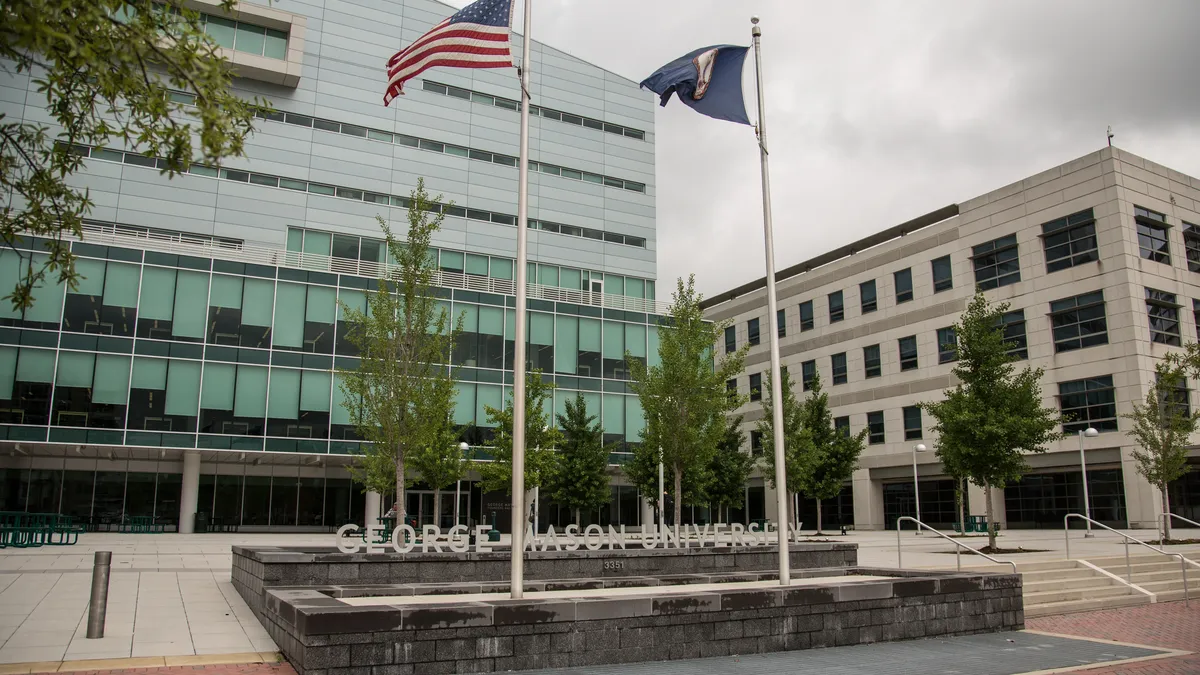Dive Brief:
-
A 55-year-old law professor at George Mason University who has been fighting the university’s COVID-19 vaccine policy in court received a medical exemption from the university and will not need to be vaccinated.
-
Todd Zywicki contended that he has recovered from COVID-19, giving him "robust natural immunity" that made vaccination medically unnecessary. But the university granted him an exemption for other medical reasons, not because of previous infection or any natural immunity.
-
The New Civil Liberties Alliance, a Washington, D.C.-based group that says it protects freedoms "from violations by the Administrative State," took up Zywicki's cause. It says it is still exploring litigation against the university and is also seeking other tenured faculty members at public universities in Virginia with similar stories.
Dive Insight:
Zywicki and the New Civil Liberties Alliance mounted a public relations campaign this summer against George Mason and its university reopening policy, which requires unvaccinated employees to be regularly tested for COVID-19 and wear masks on campus.
In July, they objected to university requirements that employees share their vaccination status and that unvaccinated employees take part in mitigation measures or face penalties up to the loss of employment. This month they filed a lawsuit against George Mason leaders in federal court, asking for an injunction to prevent the university from enforcing its policy and a declaration that the policy violated Zywicki's constitutional right to refuse medical treatment.
The New Civil Liberties Alliance touted Zywicki's medical exemption as a victory. But he will still be required to comply with university COVID-19 safety precautions including testing and face coverings, according to a George Mason spokesperson.
The developments don't resolve arguments in the case at a time when legal proceedings are outlining the boundaries of campus COVID-19 vaccination and mitigation requirements — even as colleges bring students and employees back to campuses for the fall term.
Zywicki's argument focused on George Mason's use of vaccination status and not immunity against COVID-19 to determine who must wear masks, socially distance and be tested for infection. Although the university was technically not requiring vaccination, it was pressuring him to get vaccinated, he argued.
"If I were not already naturally immune to Covid, I would have long ago gotten vaccinated at the first opportunity," Zywicki wrote in an Aug. 6 opinion piece in The Wall Street Journal. "But for those of us who have acquired natural immunity, vaccination provides none of the benefits of vaccination with all of the costs."
The university granted Zywicki an exemption for "medical reasons unique to Prof. Zywicki" and refused to grant him an exemption on the basis of his prior COVID-19 infection, a spokesperson for the New Civil Liberties Alliance said in an email. George Mason has not entered into any settlement with Zywicki, according to a statement from a university spokesperson.
The university has not given any exemptions based on claims of natural immunity nor does it plan to do so, it said.
"Granting such an exemption would not be consistent with current medical science or public health guidance," it said. The university pointed to Centers for Disease Control and Prevention guidance saying people should be vaccinated regardless of prior infection because it can boost their protection against the virus.
Zywicki's medical exemption comes as courts across the country issue rulings affecting college masking and vaccine mandates. South Carolina's Supreme Court this week ruled that public institutions such as the University of South Carolina can require students to wear masks. Last week, a judge blocked an Arkansas ban on mask mandates, paving the way for universities to issue mandates there. And the U.S. Supreme Court last week allowed to stand an Indiana University requirement that students be vaccinated against the coronavirus.









